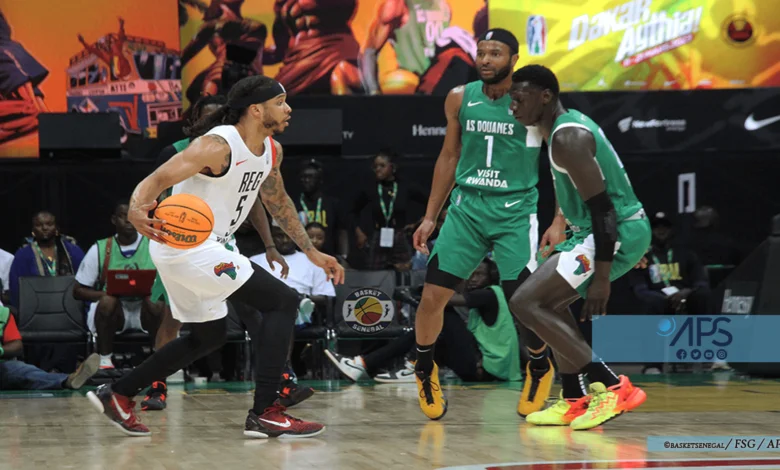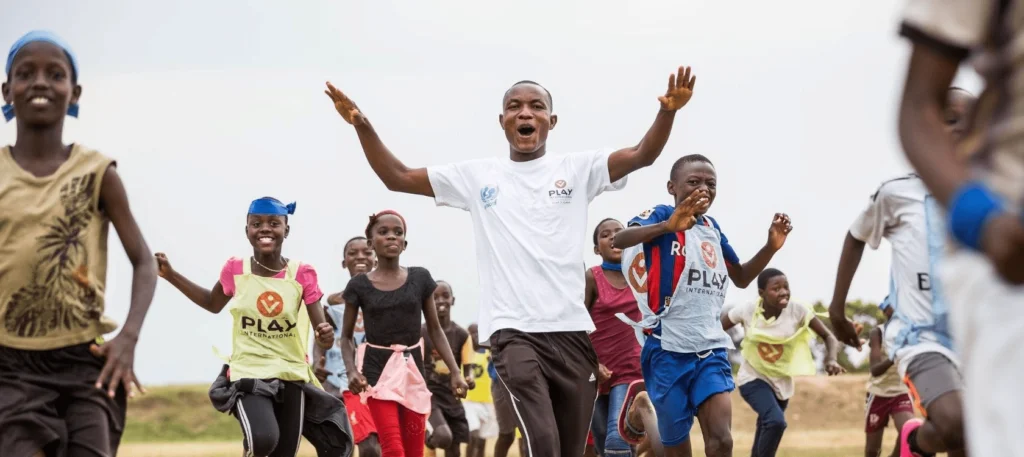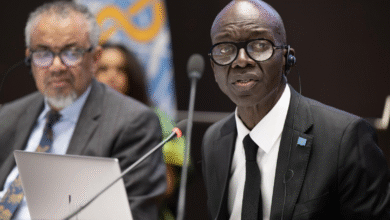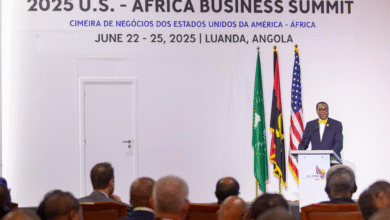Sport & Business : Africa breaks new ground
Much more than a sporting competition, the AFCON is a catalyst for bringing sport and business together to shape Africa's future. Beyond football, countries such as Nigeria, South Africa and Morocco are turning sport into an economic driver. Rwanda, with its focus on basketball and cycling, demonstrates the success of a government strategy centered on sports development.

By Dounia Ben Mohamed
With a total investment of nearly $1.5 billion, far exceeding the half-billion spent by the previous host, Cameroon, Côte d’Ivoire is in a strong position to host the Africa Cup of Nations. Determined to make the tournament a showcase for its development, the country has transformed and built new sports infrastructure in the five host cities. In return, it expects to reap significant tourism and economic benefits.
The Africa Cup of Nations remains the most prestigious sporting event on the continent, generating enthusiasm not only for football but also for the economic opportunities it represents. Hosting such an event requires huge investment in sports infrastructure, but it also provides a unique opportunity to upgrade stadiums, training facilities and related infrastructure, the benefits of which accrue to local communities. In sporting terms, it is an opportunity to promote the discipline and showcase African talent on the international stage. Economically, the AFCON is an ideal platform to promote sports tourism in Africa, creating jobs in the hotel, catering and transport sectors.
Host countries can also showcase Africa’s cultural heritage to offer a complete tourist experience, contributing to their overall economic development.Beyond football, other disciplines such as basketball, cycling, swimming and golf are gaining in importance as African champions excel and have a positive impact on the socio-economic development of countries. Once seen primarily as a tool for local development, sport is now seen as a business in its own right that needs to be promoted to increase its impact on GDP.The pioneers Some African countries stand out for their innovative approaches to combining sport and business, serving as models for other nations on the continent. Nigeria, South Africa and Morocco have developed smart strategies to maximize the economic benefits of sport.
In Nigeria, the football industry has experienced remarkable growth thanks to well-organized professional leagues and an active presence on the international stage. Nigerian clubs are attracting national and international sponsors, creating significant commercial opportunities. As host of the 2010 FIFA World Cup, South Africa has successfully used the event to boost tourism and attract investment. The world-class stadiums built for the World Cup continue to serve as multipurpose venues for sporting and entertainment events, generating steady revenues.
Morocco, the host of the AFCON 2019, has also made significant progress by focusing on infrastructure development and promoting sports tourism.These examples show that well-designed sports policies, combined with effective resource management and transparent governance, can be catalysts for sports and business development in Africa. The successes of these pioneering countries offer valuable lessons for other nations looking to use AFCON 2024 to boost their economies and strengthen their presence on the world stage.The case of Rwanda: The economic benefits of basketball

In addition to football, Rwanda is also a leader in sports and business, particularly basketball. In 2021, Rwanda successfully hosted the Basketball Africa League (BAL), a high-level continental competition supported by the NBA. This event not only attracted the attention of basketball fans from around the world, but also had a significant economic impact. Direct benefits include an influx of tourists, ticket revenues and the promotion of Rwanda as a destination for international sporting events. As the country prepares to host the World Cycling Championships in 2025, a first for the continent, Kigali is establishing itself as a popular destination for sports tourism.
These encouraging results are the result of a well-defined strategy, dear to the heart of President Paul Kagamé, to « nurture and promote the development of sport with a view to integrating it into the wider national development plan, » says Clare Akamanzi, former director of the Rwanda Development Board (RDB) and now head of NBA Africa. The Rwandan government has invested in sports infrastructure, including the Kigali Arena complex, now known as the BK Arena, to support its ambition to become a popular destination for sporting events on the continent. These investments have opened up new opportunities in the sports business.
And yet cycling is the historic sport in Rwanda. In this area, the land of a thousand hills offers some interesting opportunities. By investing in infrastructure, talent development, education and partnerships, Rwanda has been able to strengthen its position in international cycling. These efforts have led to Rwanda being selected to host the next World Cycling Championships in 2025, a first for an African country.The organization of the World Championships by Rwanda, which already hosts the Tour du Rwanda every year, presents both significant opportunities and specific challenges for the country. In terms of international visibility, it not only highlights Rwanda as a tourist destination, but also its commitment to cycling, thus strengthening its position on the world stage. The country has already used sport as an international promotional tool. In particular, the recently renewed campaign with PSG, whose players and stadiums host the now famous « Visit Rwanda » at every competition.
Morocco, Côte d’Ivoire, Senegal… Sport as a major axis of development
Football, basketball, cycling… It’s clear that the Land of a Thousand Hills is betting on all fronts to win its sports business gamble. Moreover, this policy of maximizing the economic spin-offs of sport goes well beyond the Rwandan example, as the cases of Morocco, Côte d’Ivoire and Senegal show. These countries, which have hosted or will host the Africa Women’s Cup of Nations in 2022, the Africa Cup of Nations in 2024 and the Youth Olympic Games in 2026, are also making sport a key focus for development. The potential for growth is enormous, as Amadou Gallo Fall, the first president of the BAL, points out that in Africa, the sports industry « accounts for barely 0.5% of GDP […] despite the huge popularity of sports, which are constantly diversifying ».

Sports tourism is one of the fastest growing sectors of tourism worldwide and has been for the past decade. The activities associated with such events create enormous opportunities for tourism and related industries. Donors are also getting involved in sport to support the continent’s development. The French Development Agency (AFD) has made sport one of its priorities and is working with FIFA and the NBA to make football and basketball engines of development and social change in Africa. AFD’s partners, the NBA Academy Africa and the Basketball Africa League, are concrete examples of this alliance between sports expertise and sustainable development. AFD has committed €75 million to support 70 sports projects, since 2018.







